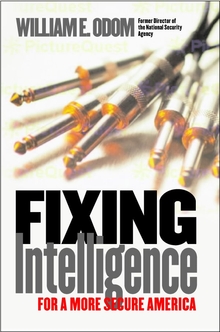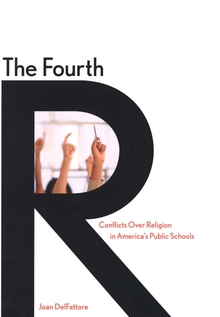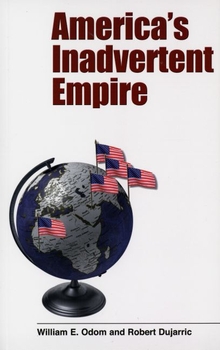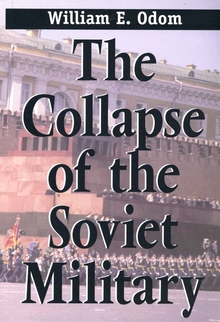Fixing Intelligence
WARNING
You are viewing an older version of the Yalebooks website. Please visit out new website with more updated information and a better user experience: https://www.yalebooks.com
For a More Secure America
William E. Odom
Out of Print
Security depends on intelligence. A leading authority discusses basic problems in American intelligence and how to fix them
William E. Odom is the highest-ranking member of the United States Intelligence community ever to write a book outlining fundamental restructuring of this vast network of agencies, technology, and human agents. In the wake of 9/11, Odom has revised and updated a powerful critique he wrote several years ago for staffs of the U.S. congressional committee overseeing the vast American intelligence bureaucracy. His recommendations for revamping this essential component of American security are now available for general readers as well as for policymakers.
While giving an unmatched overview of the world of U.S. intelligence, Odom persuasively shows that the failure of American intelligence on 9/11 had much to do with the complex bureaucratic relationships existing among the various components of the Intelligence Community. The sustained fragmentation within the Intelligence Community since World War II is part of the story; the blurring of security and intelligence duties is another. Odom describes the various components of American intelligence in order to give readers an understanding of how complex they are and what can be done to make them more effective in providing timely intelligence and more efficient in using their large budgets. He shows definitively that they cannot be remedied with quick fixes but require deep study of the entire bureaucracy and the commitment of the U.S. government to implement the necessary reforms.
William E. Odom is the highest-ranking member of the United States Intelligence community ever to write a book outlining fundamental restructuring of this vast network of agencies, technology, and human agents. In the wake of 9/11, Odom has revised and updated a powerful critique he wrote several years ago for staffs of the U.S. congressional committee overseeing the vast American intelligence bureaucracy. His recommendations for revamping this essential component of American security are now available for general readers as well as for policymakers.
While giving an unmatched overview of the world of U.S. intelligence, Odom persuasively shows that the failure of American intelligence on 9/11 had much to do with the complex bureaucratic relationships existing among the various components of the Intelligence Community. The sustained fragmentation within the Intelligence Community since World War II is part of the story; the blurring of security and intelligence duties is another. Odom describes the various components of American intelligence in order to give readers an understanding of how complex they are and what can be done to make them more effective in providing timely intelligence and more efficient in using their large budgets. He shows definitively that they cannot be remedied with quick fixes but require deep study of the entire bureaucracy and the commitment of the U.S. government to implement the necessary reforms.
William E. Odom, a senior fellow at the Hudson Institute and a professor (adjunct) at Yale University, is also the author of The Collapse of the Soviet Military, published by Yale University Press. General Odom’s former positions include director of the National Security Agency and assistant chief of staff for intelligence in the U.S. Army.
“By publishing the Odom study, the Yale University Press establishes a benchmark, a guide for public debate on this vital issue.”—David E. Murphy, retired National Intelligence Officer and CIA Soviet specialist
"General Odom's book, Fixing Intelligence, is a much-needed contribution to an area where critical policy decisions must be made. The complexity and importance of the Intelligence Community requires the kind of thoughtful discussion that General Odom brings to the debate—this is a welcome addition to the literature."—Sen. Dianne Feinstein (D-Calif.)
"General Odom uses the unique insight gained from years of experience in the intelligence business to explain in plain language an issue that is critical to U.S. national security—intelligence community reform. A valuable resource to expert and novice alike, it serves both as an excellent introduction to the intelligence community, and also as a valuable guide to the current debate over how to proceed with intelligence community reform."—Senator Richard C. Shelby
“Fixing Intelligence states crisply and exactly what needs to be fixed and how. Better intelligence is truly the frontline of national security and Odom’s criticisms of the current mess and his advocacy of specific reforms provide a blueprint for a much more effective and rational national response. In brief, it is a vital and extraordinarily timely contribution to our national debate.”—Zbigniew Brzezinski
"This is a forcefully and cogently argued book. It is a necessary read for anyone concerned about the future of intelligence."—Lawrence D. Freedman, Foreign Affairs
"What better time for a book titled Fixing Intelligence: For a More Secure America? . . . Refreshingly tart. . . . Odom's book is surely valuable."—Paul Gray, New Leader
"William E. Odom's important and thought-provoking book, Fixing Intelligence, starts from the premise that America is failing miserably in [some] . . . vital tasks. . . . Odom should know. A retired general in the Army, he writes from an insider's perspective, having served in the 1980s as head of the National Security Agency—the military outfit that operates the nation's spy satellites. And his subject matter couldn't be more timely."—Eric Lichtblau, New York Times Book Review
"William Odom has heeded the call, boldly identifying structural, organizational, and managerial problems that bedevil all the U.S. intelligence agencies. This book represents some of the best thinking on this topic today. . . . One need not be involved in national or international intelligence to profit from this book. It teaches important lessons to anyone involved in business intelligence, information security, investigations, security managing, or risk assessment."—Mark H. Beaudry, Security Management
"Indispensable. . . . Odom, a former director of the NSA, has assembled a bracing set of proposals. . . . Odom produces a detailed reform proposal that is also born out of decades of puzzling out intelligence conundrums. . . . A formidable contribution to the difficult work ahead in re-aligning the intelligence agencies' Cold War-vintage structure."—Lorraine Adams, Washington Post Book World
"Gen. Odom is well qualified to present this detailed examination of the U.S. intelligence community. . . . In Bill Odom's case, he understands the technical collection systems very well, their strengths and weaknesses, and somewhere along the line he has become quite familiar with the analytical capabilities as well as the human collection systems too. . . . The book is not only descriptive (and within the confines of 200 pages comprehensive), but prescriptive as well. . . . In any case, whether the general's ideas are right or wrong, they should be debated and not simply placed on a shelf with all the other attempts at fixing intelligence. Need it be said? This is no time for business as usual."—Roger Fontaine, Washington Times
“Odom’s book is worth a careful examination by those interested in the contribution that the intelligence community makes to national security policy making.”—Stephen Marrin, Political Science Quarterly
ISBN: 9780300099768
Publication Date: February 8, 2003
Publication Date: February 8, 2003
272 pages, 6 1/8 x 9 1/4
6 charts
6 charts










